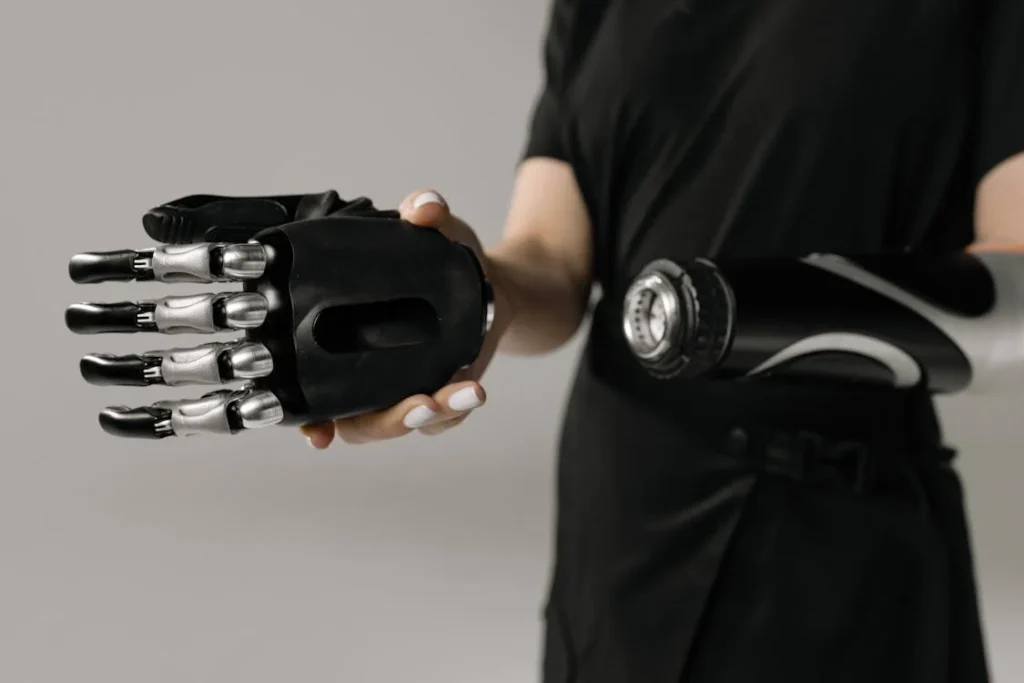In Dehradun, nestled between the Himalayan foothills and a fast-growing urban life, people live active, hardworking, and vibrant lives. Whether you’re a student walking across a university campus, a shop owner managing daily trade, or someone enjoying nature’s peace, your hands help you do everything. So, when someone loses a hand—due to injury, illness, or birth condition—the loss is not just physical. It affects independence, confidence, and everyday joy.
At Robobionics, we’ve made it our life’s work to help people take all of that back. We’re not just a prosthetics company. We are passionate builders of second chances. We combine science with heart and engineering with deep listening. That’s how we’ve become India’s most trusted name in bionic hands—and Dehradun is no exception.
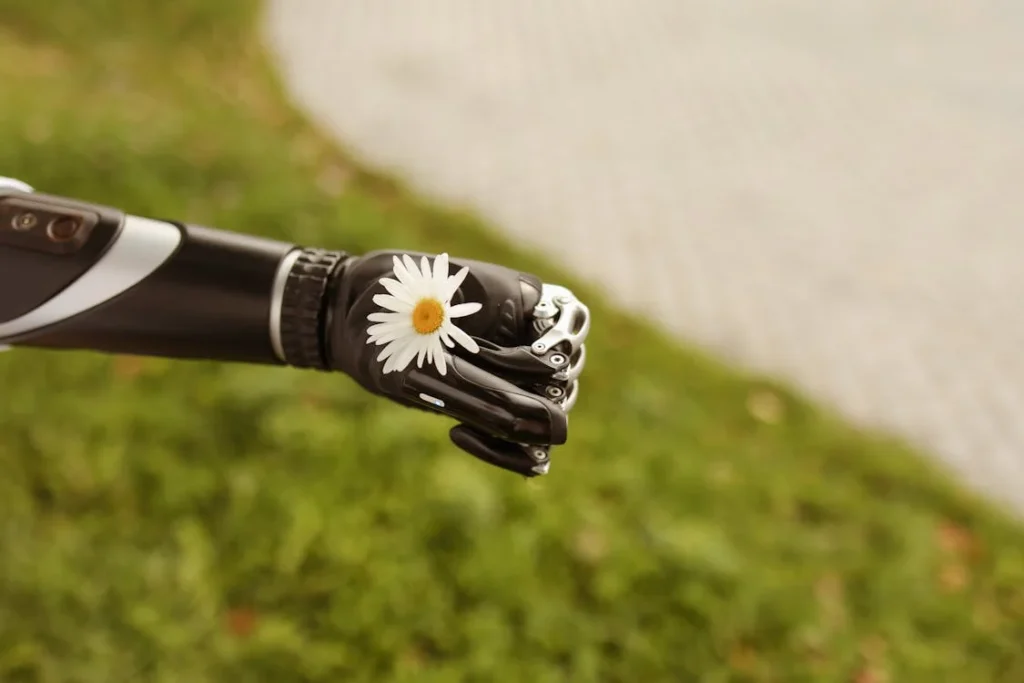
Why Dehradun Needs a Smarter, More Human Prosthetic Solution
The City’s Energy Deserves Better Support
Dehradun is a city full of motion. It’s where tradition meets modern life—bustling markets, military academies, universities, cafes, and mountain trails. Life here doesn’t stand still, and people don’t either.
That’s why a prosthetic solution must not only keep up, but make life easier. At Robobionics, we understand this unique pace. We’ve designed our bionic hands to be as flexible and dependable as the people of Dehradun themselves.
Many people in the city who’ve experienced limb loss or limb difference tell us the same thing: they don’t just want a prosthetic that “fills the gap.”
They want something that helps them take control, perform tasks naturally, and feel confident again. They want to go out without hiding their hand. They want to hold a pen, ride a two-wheeler, make food, or shake hands—without stress or second thought.
Older prosthetics, even those with price tags that looked attractive, often fall short. They’re stiff, heavy, slow to respond, or uncomfortable after long hours.
Sometimes, people abandon them altogether—not because they didn’t try, but because the product just didn’t help in the way they needed. That’s a problem. One we’re here to fix.
Understanding the Emotional Weight of Limb Loss
When someone loses a hand, life doesn’t stop. But it changes. Even the smallest daily tasks can become difficult. More than that, though, many people feel like they’ve lost a part of their identity.
We’ve spoken to users across Dehradun—from Clement Town to Rajpur Road—who describe the same feelings: hesitation to step out in public, fear of being stared at, anxiety about being treated differently.
At Robobionics, we don’t ignore these feelings. We build our bionic hands with empathy first. We understand that the journey is not just about restoring movement, but about helping people feel whole again.
That means we take extra care during fitting, training, and aftercare to ensure you don’t just wear the hand—you trust it.
It also means our team speaks to you like a human, not a medical file. We explain everything in simple terms. We guide you step by step, and we’re always just a phone call or video chat away.
We believe that you deserve a partner who understands the emotional side of recovery just as much as the technical side. That’s what makes our care different—and it’s something our Dehradun clients tell us they deeply value.
Why Technology Alone Isn’t Enough
There’s no shortage of bionic hands in the market today. Many come from abroad, loaded with features and buzzwords. But they aren’t always built for Indian conditions—or for real-life Indian challenges.
If you’ve lived in Dehradun during the rainy season, you know how humidity affects electronics. If you’ve ridden a scooter through Rajpur Road traffic, you understand how quickly a hand must react.
If you work in a kitchen, school, or field, you need something practical, durable, and easy to wear every day.
That’s where Robobionics truly shines. Our bionic hands are made right here in India—designed and tested by engineers who know the local lifestyle. We don’t just focus on specs.
We focus on usefulness. Our hands are responsive, adaptive, and tough. They work when it’s hot, when you’re busy, when you’re on the move. And they last.
We also keep comfort at the center of every design. Each socket is custom-fitted to your arm, shaped with care, and padded for all-day wear. You’ll never feel like the hand is a burden.
In fact, many of our users in Dehradun tell us they forget it’s even there—until they reach out to pick something up and smile because they can.
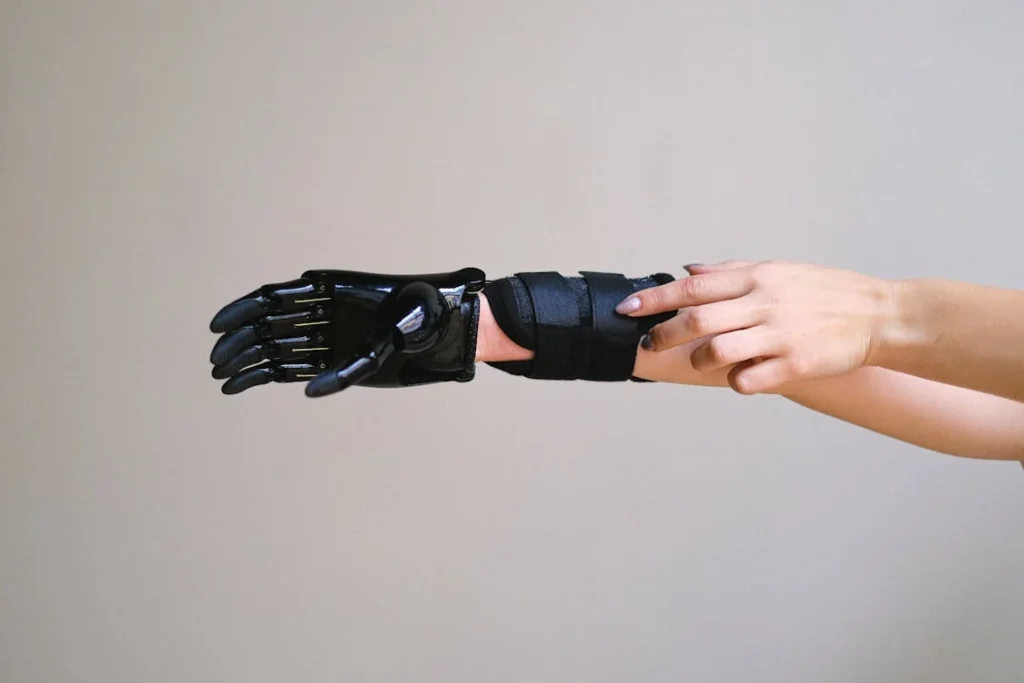
How Robobionics Turns a Bionic Hand into a Natural Extension of You
It Starts With Listening, Not Selling
At Robobionics, we do something most companies don’t. We begin with you. Not the product. Not the pitch. Just you—your story, your daily routine, your questions, and even your fears.
We’ve learned over time that the only way to build a truly helpful prosthetic is by understanding the life it will be part of. That’s especially true in Dehradun, where people have distinct lifestyles, shaped by the hills, the climate, and the city’s steady pace.
Whether you’re a student at Doon University, a shop owner in Paltan Bazaar, or a retired officer living in a quiet neighborhood near the Forest Research Institute, your day looks different—and your needs are different too.
That’s why we customize not just the design of your hand, but also the entire process around it.
Your consultation with Robobionics is personal. You’re not given a sales sheet. You’re given time, space, and answers. We ask about your daily activities.
We walk you through the technology in plain language. And we make sure you feel heard before anything moves forward. Our clients in Dehradun often say this first step is what made them feel most at ease.
Fitting and Comfort Are Everything
Once we understand your lifestyle, we begin the process of fitting. This is where engineering meets empathy. A bionic hand can only function well if it fits perfectly—and by perfect, we mean not just snug, but natural.
A poorly fitted socket can cause skin irritation, muscle fatigue, and even emotional stress. So we use digital scanning and custom molding to shape a socket that feels like it belongs.
We’ve also engineered our bionic hands to be lightweight, breathable, and smooth along all edges. This matters especially in Dehradun’s warm summers, where long hours outdoors are common. You won’t feel trapped inside your prosthetic. You’ll feel supported by it.
Our materials are chosen to adapt to Indian weather and activity levels. They don’t overheat. They don’t absorb sweat. And they last long—without losing shape or comfort.
Some users in Dehradun told us they initially expected the fitting to be uncomfortable based on past experiences. But once they wore our design, they realized how different it felt. Secure, but not tight. Flexible, but not flimsy. Strong, but still gentle on their skin.
Training That Builds Skill—and Confidence
Getting a new bionic hand is just the beginning. Learning to use it well is what turns it into something powerful. That’s why we offer dedicated one-on-one training sessions—led by experts who teach you not only the controls, but the small habits that make everyday use easier.
We start with basic movements. You’ll learn how to open and close the fingers, how to rotate your wrist, and how to grip objects with the right amount of pressure. Then we move to specific tasks—typing on your phone, lifting a bag, holding a glass of water, flipping a switch.
But here’s where it gets even better. We don’t just teach you tasks—we help you relearn life. If you’re a painter, we help you hold a brush again.
If you’re a cook, we guide you through safe, stable ways to grip utensils. If you’re a driver, we help you find your rhythm on the road. Every session is tailored. And we take it at your pace.
Many users in Dehradun have shared that this training didn’t just improve their hand control—it gave them back their independence. That, to us, is the real win.
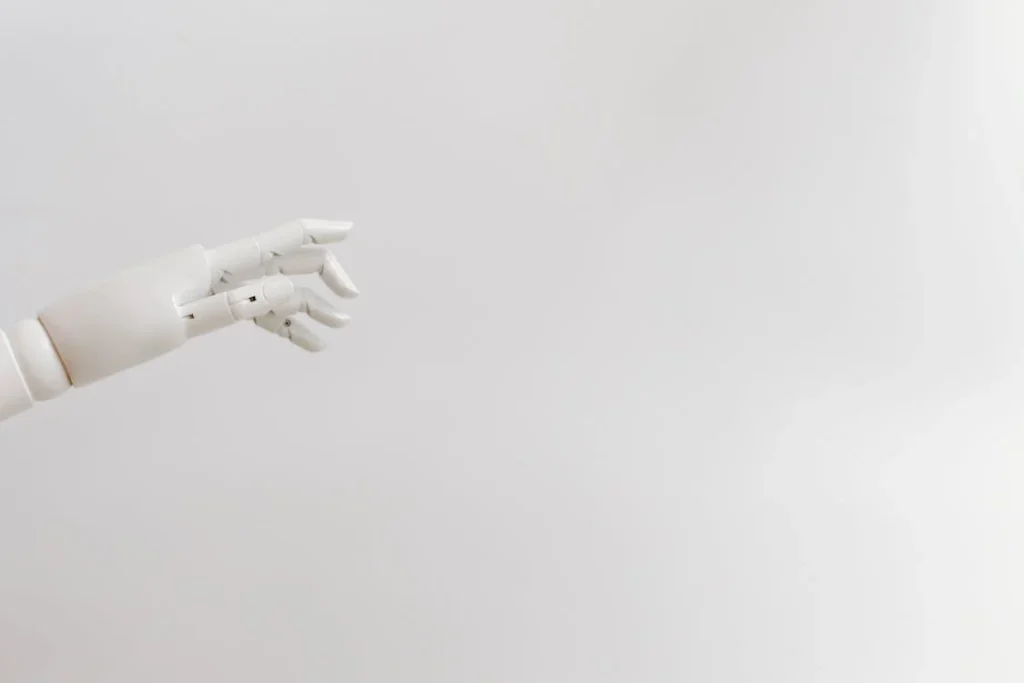
Why Robobionics Is Dehradun’s Top Choice for Bionic Hands
Made in India, for Indian Lives
One of the most important things that sets Robobionics apart is this: we design everything here. We build, test, and refine our technology right in India, not in some overseas lab disconnected from the realities of daily life in cities like Dehradun.
This gives us a deeper understanding of what people really need—and what they don’t.
For example, we know that public transport in Dehradun can be crowded and uneven. So, we made our hands compact and quick to react, making it easier to hold onto railings or carry a bag through a tight street.
We know that temperatures can swing during different seasons here—from warm summers to chilly winters. So we made sure our hands stay stable in all conditions, without overheating or freezing up.
Even cultural elements matter. In Indian families, tasks like cooking, cleaning, and participating in festivals are part of daily life.
Our users in Dehradun told us how much it meant to perform aarti, light a diya, or hold prasad again. That kind of connection is not found in imported designs. It’s found in Robobionics.
We Bring Advanced Technology Without Complicating Your Life
One reason people hesitate to try advanced prosthetics is fear—fear that it’ll be hard to understand or use. We get it. Technology can sometimes feel like it’s made for engineers, not everyday people. That’s why our entire system is built around simplicity.
Our bionic hands work using signals from the muscles in your residual limb. You don’t need external remotes or complex commands. Just natural movement—and the hand responds. Think of moving your fingers, and they move. Think of rotating your wrist, and it turns.
This ease of use is what makes our technology not just powerful, but practical. People in Dehradun who had never used a gadget before were amazed at how quickly they picked up the controls.
With a few training sessions, many users could eat, write, dress, and even ride a scooter again.
We’ve also built long-lasting batteries and intuitive charging systems. No complicated setups. No long wait times. Our hands are designed to work with you, not make you work harder.
And if anything ever feels confusing, our support team is just a call away—offering help in both Hindi and English, whenever you need it.
Unmatched Support, Right Here in Your City
Many prosthetic companies sell a product, deliver it, and move on. At Robobionics, we believe that’s not enough. Our mission doesn’t stop when your hand is fitted. In fact, that’s when our real job begins.
In Dehradun, we’ve built a strong network of on-ground partners, trainers, and medical professionals who work closely with us to support users after they receive their bionic hand. Whether it’s a quick adjustment, a software update, or simply a check-in, we are always available.
We even offer video support sessions for people who live in parts of Dehradun where in-person visits might be tough. You can speak to the same engineers who helped design your hand. You can show them exactly what’s happening. And they’ll guide you in real time.
This kind of consistent, personalized care is what truly makes a difference. It gives you peace of mind. It makes you feel like you’re not alone in your journey. And it ensures that your prosthetic continues to serve you—year after year.
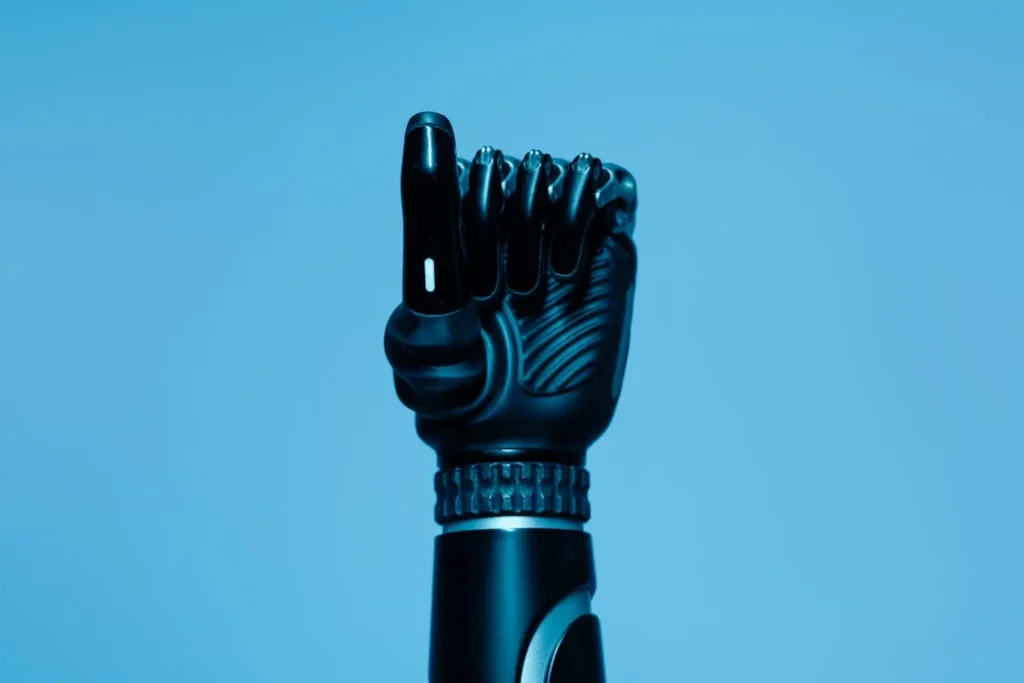
Real Stories, Real Impact – Lives Transformed in Dehradun
From Hesitation to Confidence – Rekha’s Journey
Rekha, a 27-year-old teacher from the outskirts of Dehradun, lost her right hand in a car accident on her way to school. The months that followed were filled with silence, not just from her but from people around her who didn’t know what to say.
Her chalkboard gathered dust. Her confidence disappeared. When she heard about Robobionics from a friend, she wasn’t sure if a bionic hand could really help.
But she came for a consultation anyway.
What began as cautious curiosity quickly turned into renewed hope. We listened to her story, understood her needs—especially the ability to write again and handle books—and built a bionic hand that gave her back the flow and precision she needed.
Within weeks, Rekha was writing, flipping pages, and even helping her students with projects. The smile on her face the first time she held a pen again? Unforgettable.
Today, Rekha is back in the classroom, not just as a teacher, but as a symbol of resilience for her students.
Ravi’s Return to Work
Ravi worked in a busy hardware shop near Sahastradhara Road. After losing his left hand during a factory accident, he believed his working days were behind him.
Handling tools, counting cash, carrying items—everything seemed impossible. He tried a basic prosthetic, but it didn’t offer the grip or strength he needed.
His journey with Robobionics started when his cousin found our work online. We met with Ravi, understood his daily tasks, and custom-built a solution that not only restored his grip, but helped him carry tools and operate machines again.
His hand was lightweight, responsive, and fit for long hours.
Soon, Ravi was not just working again—he was thriving. He could manage the counter, stack inventory, and even ride to work confidently. He told us, “I’m not just fixing tools again. I’m fixing my life.”
Stories like Ravi’s and Rekha’s aren’t rare. They’re happening more and more across Dehradun because people are realizing that modern prosthetics don’t have to be out of reach.
A Future That Feels Open Again
Time and again, we hear a common line from our users: “I didn’t think this was possible.” And that’s exactly why Robobionics exists—to change that mindset.
We want people in Dehradun, no matter their age, background, or injury, to know that regaining control over life is not a fantasy. It’s real. It’s achievable. And it starts with one step.
A mother once told us she cried the first time she was able to comb her daughter’s hair again. A college student said he no longer avoided social events because he wasn’t embarrassed anymore.
These aren’t just wins for us. They are reminders that a prosthetic is more than a tool. It’s a doorway. It’s a fresh start.

Robobionics Is More Than a Product – It’s a Movement of Possibility
Built on Care, Not Just Code
Behind every Robobionics hand is a team of people who care deeply about what they’re building—and who they’re building it for. This isn’t a faceless company pushing technology for the sake of it.
We are engineers, designers, therapists, and caregivers, many of whom have spent time with amputees in real-life settings, observing what works and what doesn’t. That’s why our bionic hands are less about flashy features and more about real help.
We obsess over every detail—how the fingers bend, how the battery sits, how the grip feels after two hours of use. Because we’ve seen what happens when those details are ignored.
We’ve met people in Dehradun who spent money on prosthetics that sat unused in drawers. We’ve listened to the disappointment. And we’ve promised to be different.
Every new feature we introduce is tested not in labs, but in real environments. Can you chop vegetables with it? Can you ride a scooter holding the bar confidently? Can you tie your shoelaces without help?
These are the questions we care about. This is the standard we hold ourselves to.
Shaping the Future of Inclusive Design in India
Dehradun, with its mix of tradition and progress, has taught us something powerful: solutions must be inclusive. That’s why Robobionics is now investing not just in prosthetics, but in education, research, and design thinking that involves the people who will actually use the products.
We run programs that bring together users and developers to co-create ideas. We’re building awareness in schools and colleges so the next generation grows up seeing limb difference as something that can be empowered—not pitied.
We’re also working closely with local medical professionals in Uttarakhand to create referral systems and support networks so that individuals who lose limbs don’t have to wait months before hearing about modern options.
Because the sooner people are connected to the right care, the faster they can heal—not just physically, but emotionally.
We’ve seen how, in Dehradun’s close-knit communities, one transformation can spark many. One person wears a bionic hand, returns to work, and suddenly neighbors start asking, “Where did you get that?” It creates a ripple effect. It brings courage. It breaks silence.
And that ripple is something we’ll continue to grow—with your help, with your stories, and with every hand we build.
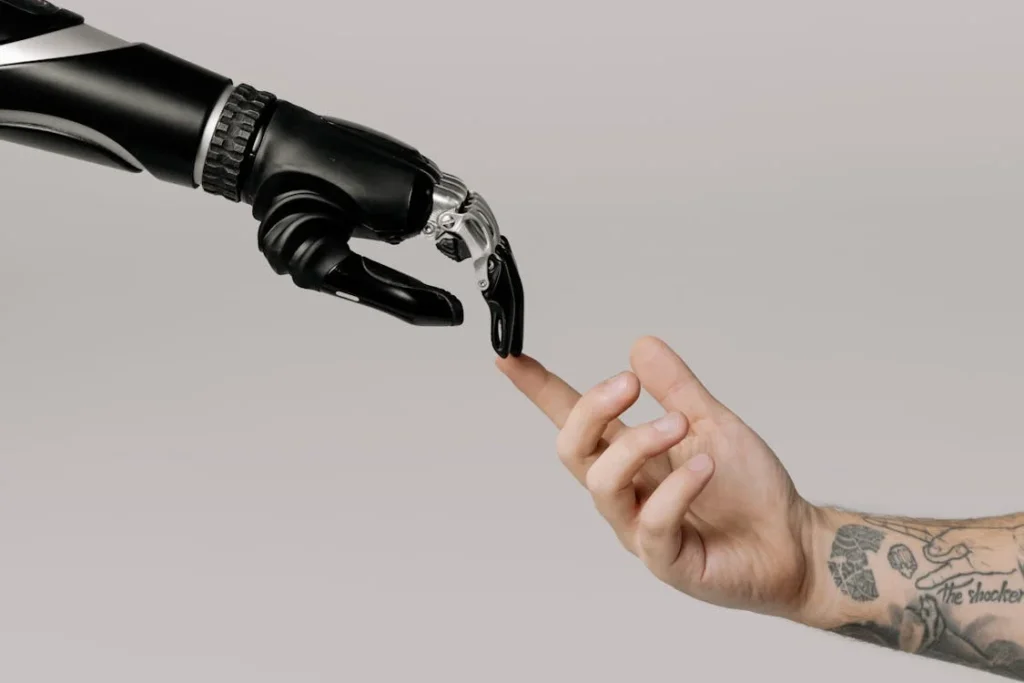
Redefining Affordability – Making World-Class Bionic Hands Accessible in Dehradun
Quality Shouldn’t Come at a Cost You Can’t Bear
One of the most common reasons people in Dehradun hesitate to explore advanced prosthetics is cost. Many believe a bionic hand must cost lakhs upon lakhs, available only to the rich or those with special connections. We’re here to change that.
At Robobionics, we believe that no one should be denied independence just because of money. That’s why we’ve worked hard to design a product that delivers global-grade performance without the global price tag. How do we do this?
By building smartly, locally, and intentionally. We use materials that are durable but cost-effective, design in-house to avoid expensive foreign licensing, and eliminate unnecessary features that add flash but don’t improve function.
This approach allows us to deliver a high-performance, intuitive bionic hand at a cost that is not just competitive—it’s life-changing.
Transparent Pricing With Real Support
We’ve also made the buying process simple and transparent. There are no hidden charges, no last-minute surprises, and no jargon-filled invoices. Whether you’re in the city center or a nearby town like Vikasnagar or Mussoorie, we treat every customer with the same respect, dignity, and care.
Our team explains every part of the process—from fitting and training to maintenance and follow-up—so you know exactly what you’re paying for. And more importantly, we help you find ways to make it easier.
In Dehradun, we work with a growing number of hospitals, NGOs, and local rehabilitation centers to help eligible individuals apply for financial aid or get support from charitable programs.
If you qualify for a subsidy or insurance coverage, we walk you through the paperwork. If you’re paying out of pocket, we explore flexible installment options.
We understand that money is a serious factor in any medical decision. But we don’t want it to become a wall that stands between you and your second chance.
Value That Goes Far Beyond the Price Tag
We also believe in long-term value. When you invest in a Robobionics hand, you’re not just buying a device. You’re investing in years of daily use, independence, and emotional freedom. And we stand by that.
Our prosthetic hands are built to last, with durable parts and upgradeable systems. If your needs change—if your job evolves, your muscles grow stronger, or your lifestyle shifts—we can fine-tune your device so it continues to serve you.
That means you’re not locked into one version forever. You grow, and your hand grows with you.
People in Dehradun have told us time and again: “This is the best investment I’ve ever made.” Not because it’s fancy, but because it gave them back something no money can buy—control over their own life.
Conclusion
Dehradun is a city filled with energy, heart, and resilience. Every street, every home, every person here carries a story—one of movement, purpose, and pride. At Robobionics, we exist to help people continue writing those stories, even after loss. We’re not just in the business of making bionic hands. We’re in the business of rebuilding confidence, restoring independence, and reawakening hope.
If you or someone you love is searching for the best prosthetic bionic hand in Dehradun, know this: you don’t have to compromise. You don’t have to settle for a solution that feels foreign, uncomfortable, or out of reach. With Robobionics, you get world-class technology, human-first design, and care that begins from the first hello—and never truly ends.
We’re proud to serve the people of Dehradun. We’re inspired by your stories, moved by your strength, and committed to walking beside you every step of the way.
Let Robobionics help you reach again, create again, live again—with power and possibility right in the palm of your hand.



